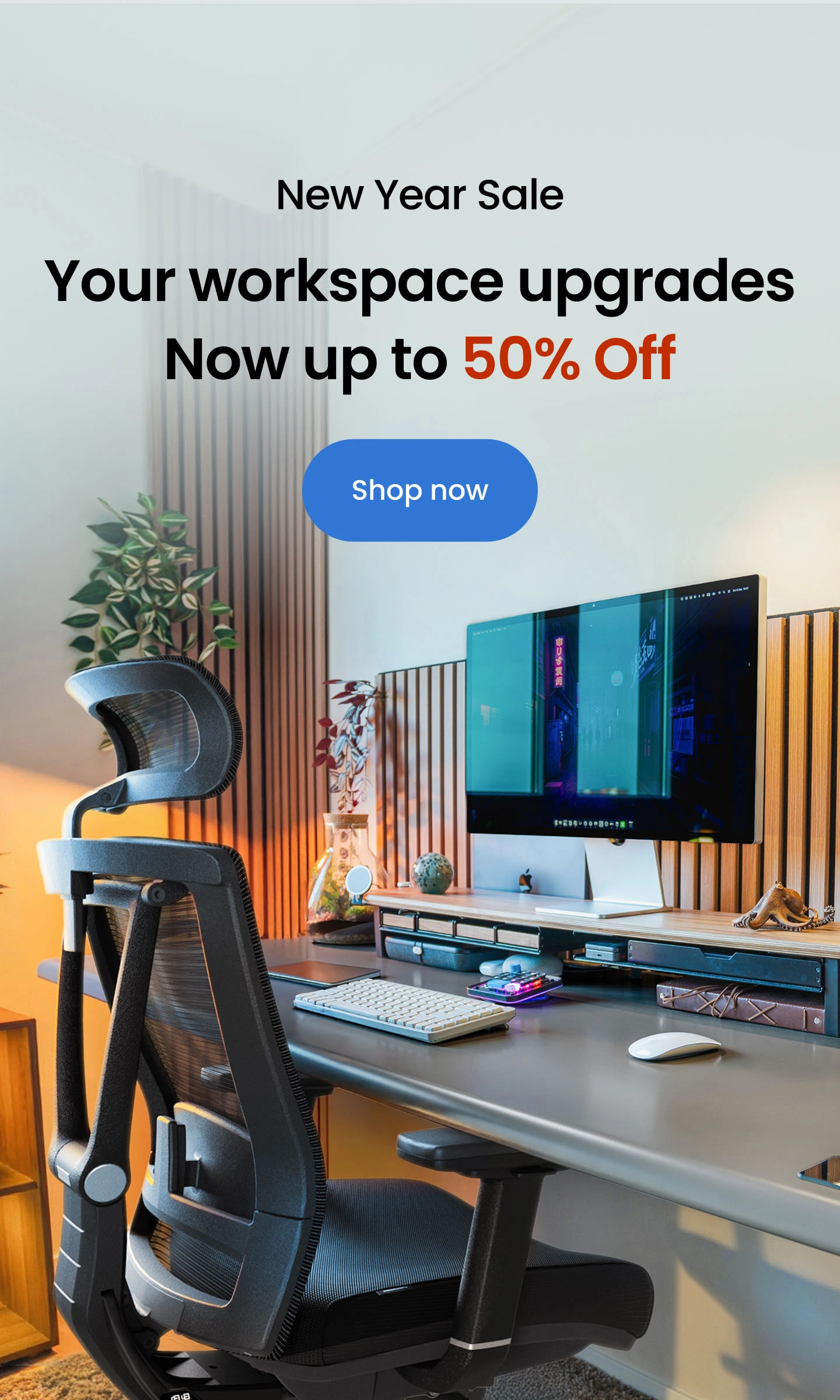
Sitting In Chairs vs. Sitting on the Floor: Which One Is Better?
Working sitting postures have changed a lot over the past years. While office workers tend to sit on a chair to fulfill their daily activities, recent trends have allowed some workers to sit on the floor to sit more comfortably.
Undoubtedly, sitting on the floor comes with many benefits to the user, although it’s rare to see someone working in an office adopting these sitting postures. It’s important to note that for hundreds of years, people rest on the ground through many postures, such as squatting, sitting cross-legged, or even kneeling.
While there are chairs that can accommodate most of these postures of sitting in chairs, some people still prefer sitting on the floor rather than sitting in chairs. It’s no surprise that sitting on a chair can come with several issues for your overall health. However, that doesn’t mean that sitting on the floor is always the most appealing option for everyone.
In this article, we’re going to discuss sitting on the floor vs. chair. Additionally, we’re going to show you which scenarios are more appropriate for sitting in a particular position, as well as a few product recommendations so that you can achieve the best sitting posture at work.
All Truths and Myths about Sitting on the Floor
Benefits of Sitting on the Floor

Most people are familiar with the benefits of sitting in chairs, so we’re going to go over sitting on the floor first. As mentioned before, people have sat on the floor for their daily activities for hundreds of years. However, it may not always be appropriate to sit on the floor, especially in office environments.
Still, there are many advantages that come from sitting on the floor pose over sitting in chairs, and we’re going to show them in this section.
Posture

Humans are designed to adapt their bodies to most conditions. When it comes to working in an office, you may notice you’re slowly changing your sitting position to feel more comfortable; in some cases, you may not even notice you’re doing it!
The problem with this factor is that not always the adjustment in a chair sitting posture is healthy for your body. If you’re used to working for many hours, your body may start twisting to accommodate your needs, but that can lead to a lot of physical discomfort in the long run.
Keep in mind that sitting for too long can affect your pelvis movement and low back angle. While chairs allow you to adjust your sitting posture in any way you like, sitting on the floor forces you to keep a neutral spine. If you get used to sitting on the floor, you may notice a lot of improvement in your posture.
Strength
Prolonged sitting can also cause some muscle fibers to break down. Some of the most common problems include tight hamstrings, strained shoulders, and more. On the other hand, sitting on the floor forces you to move your body continually to ensure you’re working in the right position. Additionally, it works your lower back and core, which is great for strength.
Finally, sitting in chairs for too long can cause your buttocks to tighten, which can get extremely painful. On the contrary, sitting in a cross-legged position on the floor can help strengthen them, avoiding the pain.
Digestion
It has been proven that sitting on the floor pose helps improve digestion processes. Keep in mind that if you eat from a place on the floor, you must bend to get the food to your mouth. Doing this motion can help work your abdominal muscles, which therefore improves the secretion of digestive juices.
Overall, sitting on the floor can lead to several health benefits (as long as you do it correctly). However, sitting on the floor pose is not for everyone. Some people get floor cushions to make the transition, but it’s still a challenging process for someone who’s used to sitting in chairs all day long.
How to Achieve a Good Sitting Posture on the Floor

There are several different sitting postures you can do. Remember that sitting on the floor allows you to be more flexible with your body since nothing is holding your body back. Keep in mind that not all these postures may be good for you, so make sure you try until you find the one that feels comfortable to you.
- Cross-legged: This is one of the most common methods to sit on the floor. First, you must sit and bend your knees so that they’re facing outward. Once you’re done, you can place one foot under the opposite knee and shift your weight to your hips.
- Kneeling: In kneeling, all you have to do is lower your knees to the ground, one knee at a time. Then, you may place your shoulders over your hips and rest your buttocks on your heels for more comfort. If you’re experiencing discomfort, you may try using a mat.
- Squatting: Squatting involves planting your feet on the floor and lowering your buttocks until they’re above the floor. While squatting is highly popular, it’s not as comfortable for working long hours.
- Bent Sit: In bent sitting, you must sit and bend your knees so that you’re able to plant your feet on the floor. Make sure your feet are wider than hip-width apart.
- Long Sit: In long sitting, all you have to do is extend your legs and flex your toes.
- Side Sit: Here, you start in the bent sitting position and lower your knees to the right.
Regardless of the sitting posture you decide to go for, remember that comfort is your primary goal. If you sit incorrectly, you may make your physical pain even worse. In all cases, you must ensure your spine is in a neutral position and that you’re keeping your weight on your hips rather than your feet since this helps to reduce pressure on your ankles.
Disadvantages of Sitting on the Floor

While sitting on the floor comes with many health benefits, there are also some disadvantages you must be aware of.
First, sitting on the floor can cause some additional stress on your joints if you don’t do it correctly. On the other hand, you could reduce blood circulation in your lower limbs since you’re placing your entire upper body on your lower body.
People tend to slouch when they’re sitting on the floor. If you don’t pay attention to these problems, you could develop serious postural issues. In case you’re looking for the right writing posture, sitting on the floor may not be ideal for you.
It’s important to note that if you have any joint issues, you should avoid sitting on the floor since it can place extra tension on them. This could lead to further physical problems and issues while trying to stand back up.
All Truths and Myths about Sitting on Chairs
Benefits of Sitting on Chairs
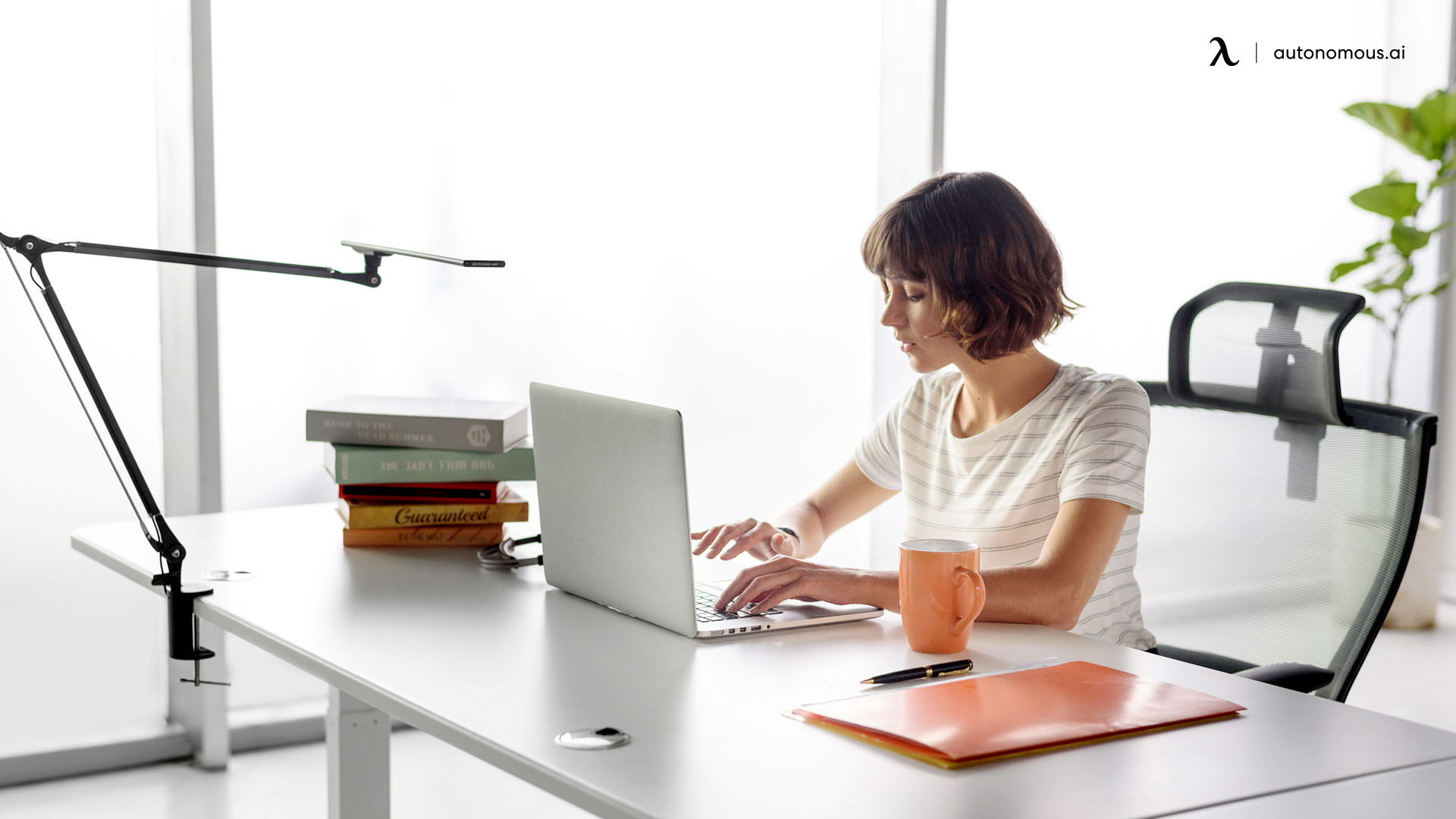
Keep in mind we’re not talking about regular chairs in this section. While most offices use traditional chairs for their employees, these have proven to be unreliable in the long term since they don’t promote healthy sitting postures.
Instead, we’re going to talk about the benefits of sitting on an ergonomic chair. These chairs were designed with the sole purpose of helping you sit more comfortably and adjust your posture with their adjustable features.
Overall, here are the benefits of sitting in ergonomic chairs:
Posture
A reclining ergonomic chair allows you to adjust some of its features to accommodate your preferred sitting posture in a healthy way. In essence, these products allow you to adjust the office chair height, armrests, seat, and more.
Ergonomic chairs do a great job of promoting a healthy sitting posture. While it could take a while to get used to your new chair sitting posture, the chair’s ergonomic features allow you to make an easier transition, making your muscles feel less tense over time.
If you’re experiencing severe posture problems, a posture correction chair is one of the best products you can currently purchase.
Reduced Tension and Pressure
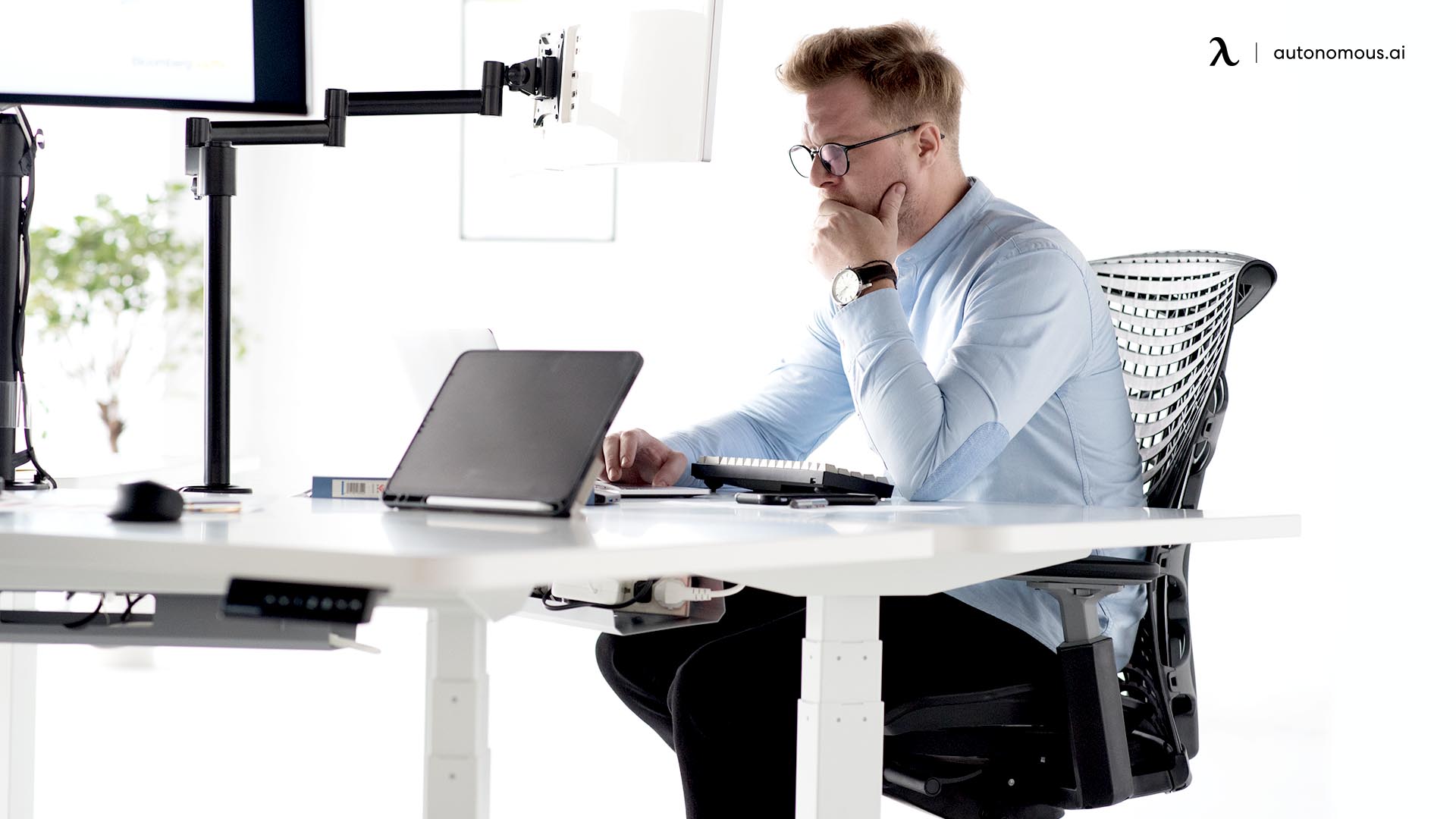
It’s no secret that sitting in chairs for too long can cause a lot of tension and pressure on your neck, shoulders, and back. Most ergonomic chairs feature headrests, lumbar support, adjustable armrests, and other features that allow your body to adjust accordingly over the day. Additionally, the seat depth that most chairs come with allows you to reduce pressure on your hips, which is a common problem with traditional chairs that come with hard surfaces.
Comfort
Ergonomic chairs are much more comfortable than traditional chairs. As mentioned before, you can adjust all of its features so that it fits all your sitting needs. Traditional chairs often come with one or two adjustable features, but that isn’t likely to be enough for office workers who tend to work all day long.
If you’re one of those who spend more time in their office than at home, going for the most comfortable office chair for long hours may be the solution.
Productivity
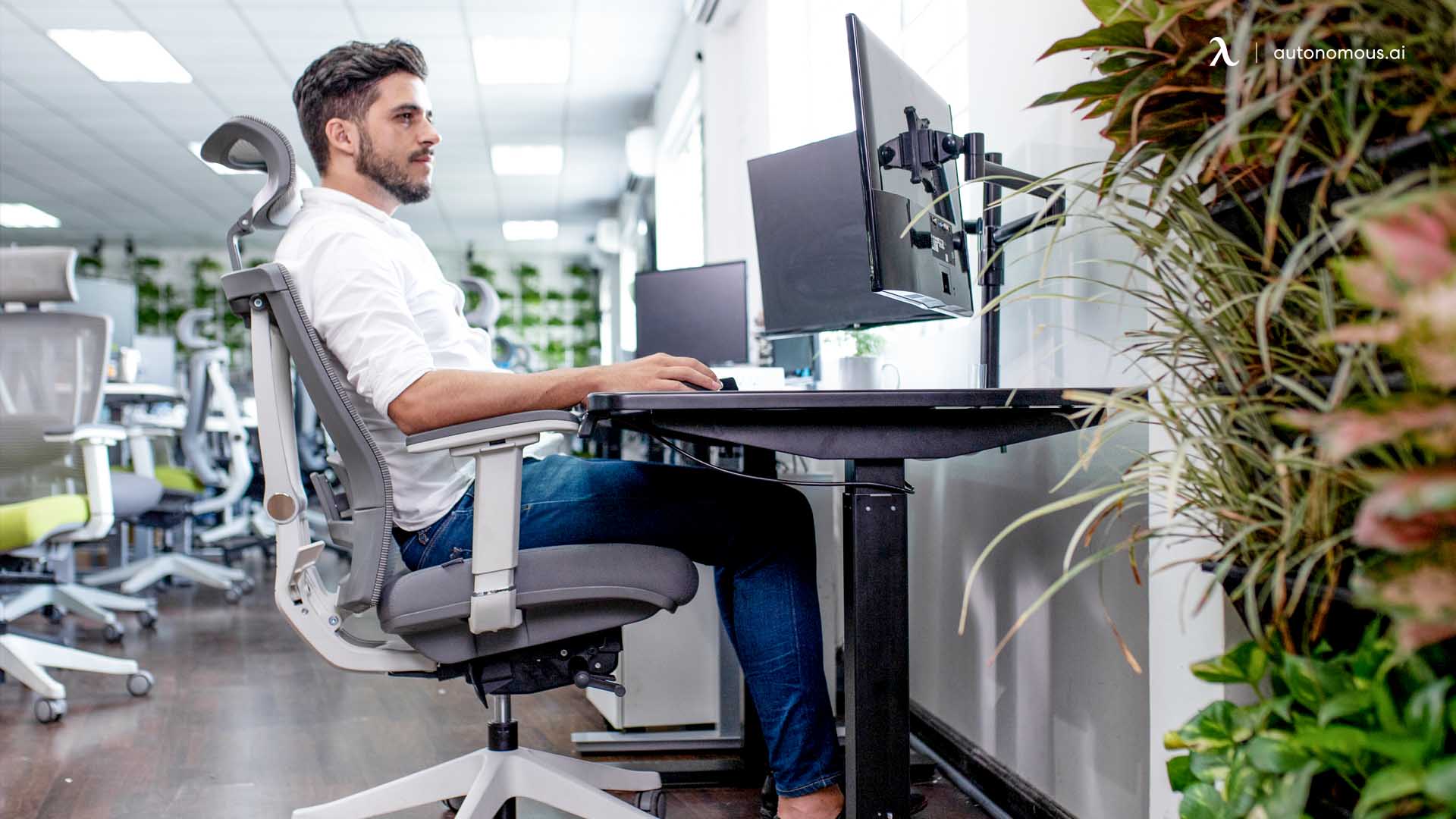
In case you buy an ergonomic chair, you’re ensuring a much more comfortable sitting experience. Keep in mind that the more comfortable you feel while working, the more likely you are to be more productive and have a better mood while performing tasks.
How to Achieve a Good Sitting Posture in Chairs
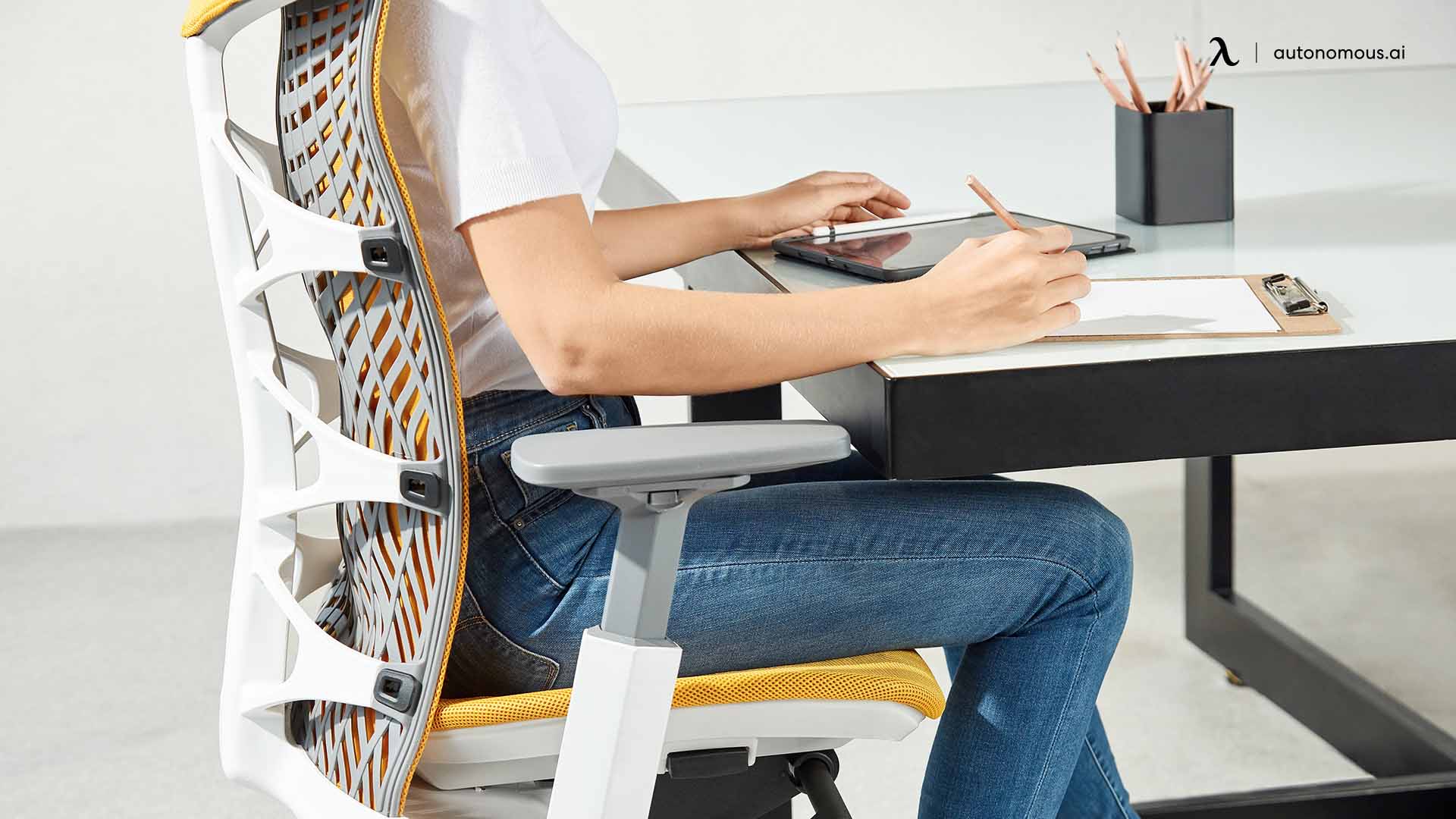
Sitting comfortably in a chair is much more straightforward than sitting on the floor. Overall, you must ensure your spine is in a neutral position, your feet are flat on the floor, and your arms are not over-extending to reach your office tools.
Thankfully, ergonomic chairs do an excellent job at promoting better sitting habits, which translate to more comfortable sitting. If you purchase an ergonomic chair, all you have to do is adjust its features accordingly until you reach a position that fits your needs. A “sitting on the floor” pose may be adequate in some cases, but if you’re sitting in an ergonomic chair, you may achieve a better posture faster.
In case you want to ensure the best sitting posture possible, Autonomous’s ErgoChair Pro offers all the features you need to feel as comfortable as possible while maintaining a healthy and good posture.
Disadvantages of a Chair Sitting Posture
Some of the disadvantages of sitting in chairs include the following:
- Sitting for too long can increase the risk of suffering chronic health problems, such as diabetes or heart disease
- Prolonged sitting can be harmful to your mental health, causing bad moods and lower energy levels due to discomfort
- If you don’t adjust your posture accordingly, you may be exposed to neck, shoulder, and back problems in the long run
In these cases, it’s better to maintain an active sitting routine, where you take a few breaks to walk around and move your legs. If you don’t do this, your body may be at risk of suffering one of the issues stated above.
When Should You Sit in a Chair or the Floor?
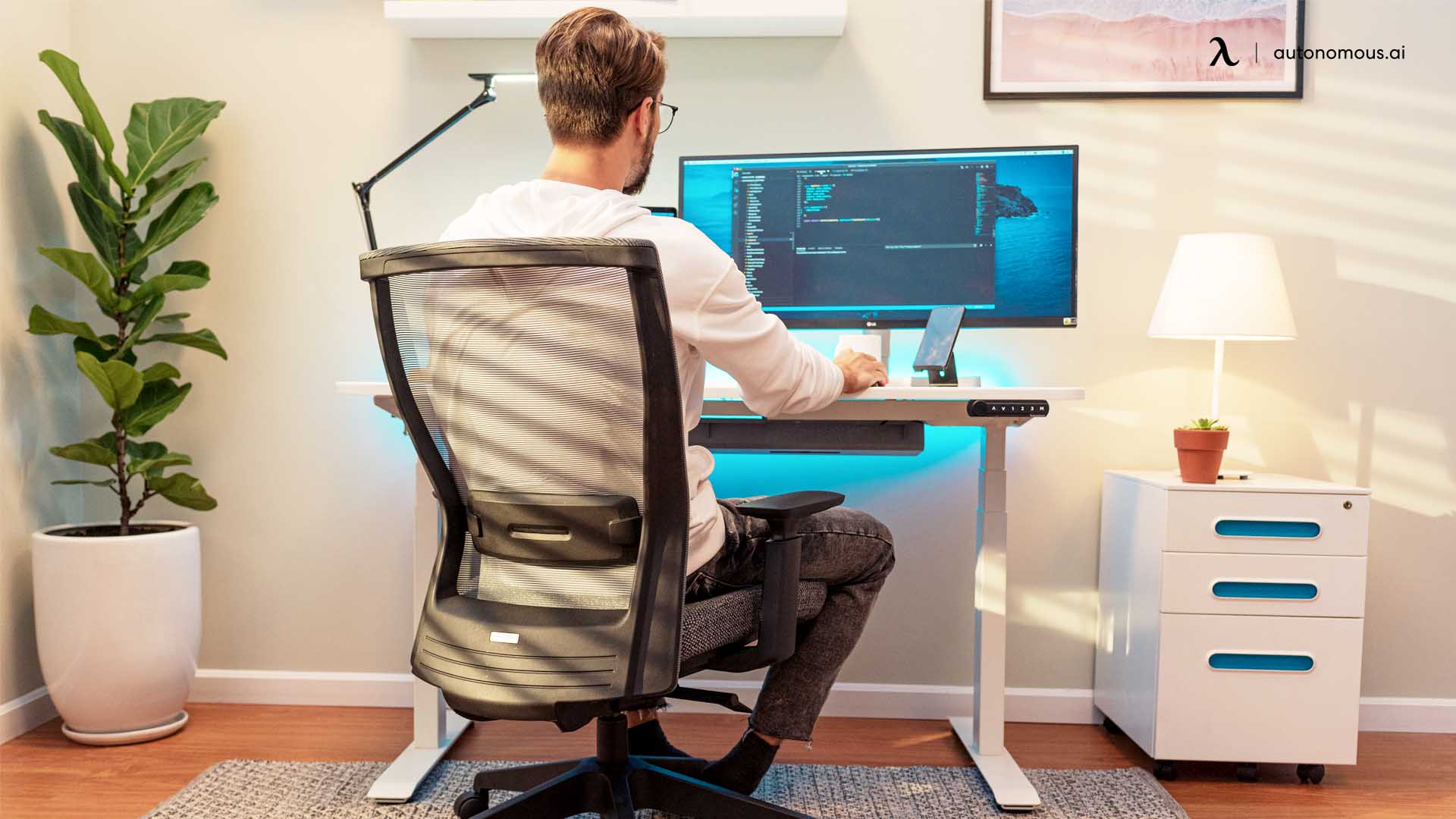
As mentioned before, these sitting types are not suitable for every circumstance. First, you must evaluate whether you can accommodate that sitting position into your workspace.
Consider sitting in a chair under the following conditions:
- You have an ergonomic chair
- You work with a fixed-height desk
- You can’t perform your work tasks while sitting on the floor
- Your company doesn’t allow you to sit on the floor while working
- You have a particular lumbar condition (In these cases, consider purchasing an adjustable lumbar support office chair)
On the other hand, consider sitting on the floor under the following conditions:
- Your company allows you to choose the sitting position you feel the most comfortable in
- You can perform your tasks while sitting on the floor
- You don’t have a comfortable chair for a comfortable sitting
- You’re experiencing some physical issues due to sitting on a chair for too long
Keep in mind you don’t have to stick with a single comfortable sitting position all the time. You can accommodate both sitting styles as long as you keep a healthy sitting posture. Additionally, it’s a great idea to work with different sitting positions since it promotes body movement, reducing the chances of suffering chronic health diseases.
Bottom Line
In essence, both sitting styles are great as long as you do them correctly. If you’re working for too many hours a day, make sure you’re not engaging in unhealthy sitting in chairs or on floor habits, such as slouching.
Remember that your goal is to feel as comfortable as possible while you’re working, so make sure to choose the option that fits your needs.
.svg)


